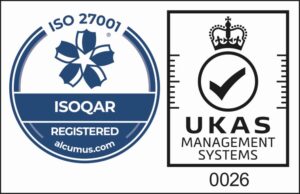Unveiling Tomorrow’s Workspace: Trends and Technologies Sculpting the Future of Remote Work
The evolution of remote work has been nothing short of a revolution, transforming traditional office dynamics into a new era of flexibility and digital collaboration. As organizations and employees adapt to this paradigm shift, a spectrum of trends and technologies is emerging, shaping the future of remote work. Let’s explore the landscape where innovation meets remote work and discover the trends and technologies that are driving this transformation.
Hybrid Work Models
The future of remote work lies in hybrid models that seamlessly blend remote and in-office experiences. This approach accommodates diverse work styles, optimizing productivity and employee well-being. Organizations are reimagining their physical workspaces to become flexible, collaborative hubs that complement remote work arrangements.
Virtual Reality (VR) and Augmented Reality (AR)
VR and AR technologies are ushering in a new era of immersive collaboration. From virtual meetings to training sessions, these technologies replicate physical interactions in virtual spaces, making remote work feel more engaging and interactive.
AI-Powered Productivity Tools
Artificial Intelligence is revolutionizing productivity tools. AI-driven assistants streamline tasks, manage schedules, and even predict project outcomes. These technologies enhance efficiency and enable remote workers to focus on high-value tasks.
Cloud Collaboration Platforms
Cloud-based collaboration platforms are the beating heart of remote work. These platforms offer real-time document editing, video conferencing, and seamless communication, fostering teamwork regardless of physical distance.
Enhanced Cybersecurity Measures
With remote work expanding, cybersecurity is paramount. Organizations are embracing advanced security measures such as multi-factor authentication, encrypted communication, and secure VPNs to protect sensitive data from cyber threats.
Remote Performance Management
Supervising remote teams requires innovative performance management solutions. AI-driven analytics offer insights into employee productivity and engagement, helping managers make informed decisions and provide timely support.
Focus on Employee Well-being
Remote work’s success hinges on employee well-being. Organizations are investing in wellness initiatives, mental health support, and flexible work schedules to ensure that remote employees maintain a healthy work-life balance.
Internet of Things (IoT) Connectivity
IoT devices are becoming integral to remote work setups. From smart home offices to wearable tech, IoT enables seamless connectivity, data sharing, and automation, enhancing efficiency and convenience.
Remote Onboarding and Training
Virtual onboarding and training programs are on the rise. Organizations are leveraging e-learning platforms, webinars, and interactive modules to acclimate new hires to company culture and workflows.
Data Analytics for Remote Work Insights
Data analytics offer valuable insights into remote work dynamics. Organizations are using data to identify trends, assess productivity patterns, and tailor remote work strategies to optimize results.
Embracing the Future of WorkAs the boundaries of remote work continue to expand, the convergence of innovative trends and technologies is reshaping the way we work, collaborate, and interact. The future holds a dynamic landscape where remote work is not just a contingency plan but a strategic choice that leverages cutting-edge technologies for enhanced productivity, engagement, and well-being. By embracing these trends, organizations can create a workspace that transcends physical limitations, fostering a truly empowered and connected remote workforce.




